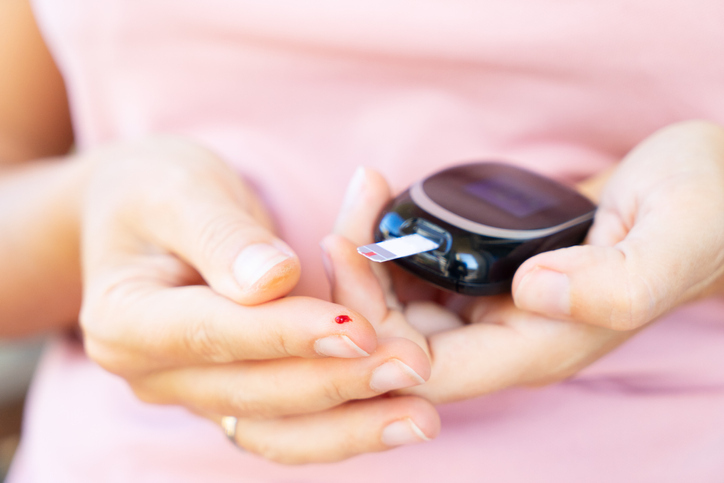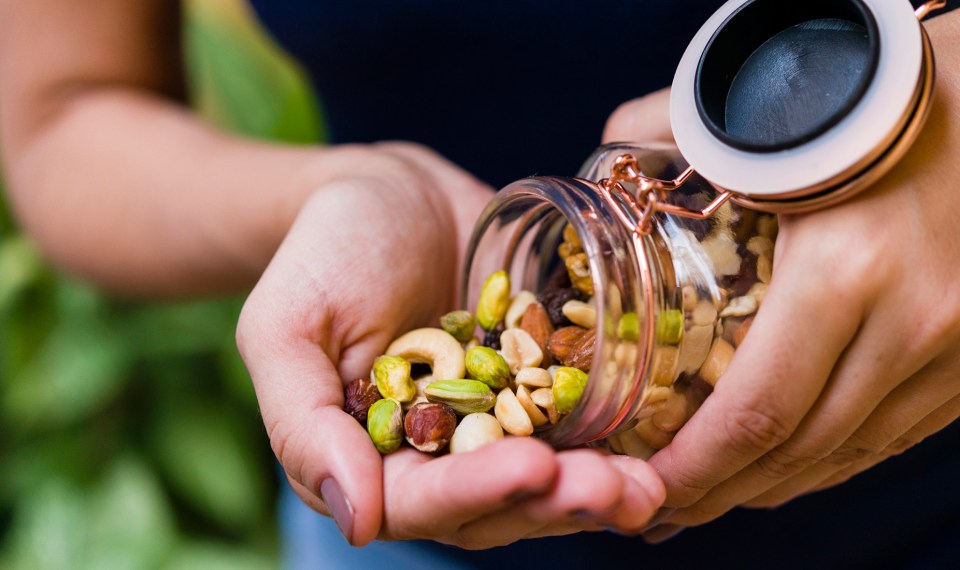The Centers for Disease Control projects that more than one in three adults have prediabetes, however because prediabetes symptoms and signs can be subtle, more than 80% of people with prediabetes don’t know they have it. That can be dangerous, as prediabetes puts you at a higher risk for other health conditions like Type 2 diabetes, heart disease, kidney disease and stroke.
The good news is that understanding prediabetes symptoms is the first step to reversing course and living a healthier lifestyle.
“By incorporating healthier lifestyle factors you might be able to reduce the risk of prediabetes developing into Type 2 diabetes,” said Alyssa Crouch, a registered dietitian at Encompass Health MidAmerican Rehabilitation Hospital. “In some cases Type 2 diabetes can be managed without medications and through lifestyle factors alone.”
What is Prediabetes?
Just as the “pre” in the name suggests, prediabetes happens before diabetes and occurs when blood sugar levels (also known as glucose) are higher than normal, but not high enough for a doctor to diagnose diabetes.
So what causes it? The pancreas makes insulin, a hormone that acts like a key to let blood sugar into cells to be used as energy. If you have prediabetes, the cells in your body don’t respond as they should to insulin. The pancreas then makes more insulin to get the cells to respond, and eventually your pancreas can’t keep up. This causes a spike in blood sugar, which leads to prediabetes.
Prediabetes Symptoms
Prediabetes symptoms often go undetected until more serious health complications arise. Prediabetes symptoms can have a domino effect—one symptom causes another, and then another. Common prediabetes symptoms are:
- Frequent urination: Kidneys rid our bodies of waste by producing urine. Too much glucose in the blood means our kidneys have to work harder and produce more urine to rid our bodies of the excess glucose. This leads to another prediabetes symptom: dehydration.
- Dehydration: When kidneys are working excessively hard to rid the body of glucose through urination, other fluids are pulled from the tissues in our bodies. This leads to dehydration.
- Increased thirst: Also known as polydipsia, excessive thirst occurs when your kidneys work overtime to rid your body of excessive glucose through urination. Frequent urination means your body is losing fluids and triggers thirst to replace it.
- Increased hunger: When the cells in our bodies don’t respond to insulin, our bodies’ cells don’t get the energy they need and trigger hunger.
- Unexplained weight loss: While prediabetes can cause increased hunger, it can also result in weight loss. This happens because when cells aren’t getting the fuel they need, they start using our body’s stored fat for energy, which can cause weight loss, even if you’re eating more.
- Fatigue: If you’re feeling overtired and having difficulty getting up in the morning and performing everyday tasks, you could be suffering from fatigue. Fatigue has many causes, which can make it hard to link to prediabetes specifically. However, fatigue manifests for a number of reasons. If your body can’t access sugar for energy, you can get tired. Feeling overtired can also result from frequent waking in the night to urinate, obesity and inflammation.
- Dark patches on the skin: Excess insulin can cause skin issues like acanthosis nigricans—dark spots on the skin with a thick texture commonly found on the neck, armpits and groin area (although they can be visible elsewhere on the body).
Know the Risk Factors
It’s important to talk to your doctor about having your blood sugar levels checked! You are at a greater risk of developing prediabetes if:
- You’re 45 years or older
- Overweight
- You have a parent, brother or sister with Type 2 diabetes
- You lead a sedentary lifestyle (active less than three days per week)
- You had gestational diabetes or gave birth to a baby who weighed more than 9 pounds
- Have polycystic ovary syndrome
- You are African American, Hispanic/Latin American, American Indian, Pacific Islander or Asian American, as those ethnicities are at a higher risk.
Can Prediabetes Symptoms be Reversed?
Prediabetes can be stopped through proper diet and exercise. Couch offers a few easy ways to live healthier and reduce your risk of developing prediabetes. In some cases, Type 2 diabetes can be reversed. Always consult your doctor before making any changes.
- Move more: According to Crouch, even a small boost in physical activity can be beneficial to overall health. Aim for at least 30 minutes, five days a week.
- Be mindful of your plate: While Couch doesn’t consider any foods off limits, she does recommend making healthier choices when possible. “Fill half your plate with vegetables and the other half with protein and carbohydrates for a good balance,” she said.
- Make the swap: Suggestions include swapping out enriched grain products such as pasta, rice and bread for their whole grain alternatives and adding fruits and vegetables to every meal. All of these foods are rich in fiber, which aids in blood sugar maintenance.
- Go easy when you can: Opt for pre-cut fruits and vegetables to make meal prep a breeze. Other pre-portioned snacks like peanut butter packets or string cheese make it easy to add protein to your snacks (try peanut butter with an apple, for example).
- Consult the plentiful resources available: Couch recommends patients to consult the Diabetics Food Hub website as a resource for recipes, meal planning and grocery shopping. She also encourages patients to actively seek out educational opportunities at their local hospitals, libraries and healthcare facilities to stay informed and learn more ways to reduce the risk of prediabetes.
The content of this site is for informational purposes only and should not be taken as professional medical advice. Always seek the advice of your physician or other qualified healthcare provider with any questions you may have regarding any medical conditions or treatments.



